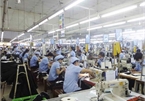 |
| Ngo Thi Ngoc Lan, Regional Director of Navigos Search |
What are the current difficulties and challenges in managing, hiring and employing employees?
Due to stalled business activities, recruitment has also been affected by the pandemic.
As observed by Navigos Search, the three areas that have seen the most significant impacts are services, tourism and hotels, manufacturing, and commerce.
In the field of tourism, restaurants, hotels have been closed and tours have been forced to cancel due to insufficient numbers of guests, festivals and events, cutting tourists from other countries.
In this situation, small companies in the tourism industry, restaurants and hotels have had to place half or one-third of their temporary employees on leave. Some companies have to reduce personnel. Large companies are still sending employees to work. However, if the epidemic does not end soon, the revenue at big companies will be affected, leading to an inability to pay current salaries.
Many businesses have had to cancel recruitment plans they set before the Tet holiday, or postpone new recruitment.
As for manufacturing, China is known as the world's factory for goods. The closure of the border to prevent the disease spreading has affected imports of materials from China to Vietnam. Some factories, due to the availability of raw materials or back-up sources from other countries, are able to operate normally. However, many others have been forced to halt production activities because they can’t import components from China, forcing workers to take temporary leaves.
In addition, companies wishing to recruit and expand; to shift production lines from China to Vietnam, or set up new factories in Vietnam have also been delayed.
It is impossible to predict the scale and development of the pandemic, so businesses are having difficulties determining when they will resume production. For the SARS epidemic in 2003, it took at least a year for businesses to recover and go back to normal. It may take longer for large-scale epidemics.
Currently, the Ministry of Labour, Invalids and Social Affairs is tightening licensing for foreign workers in Vietnam as an effort to prevent the COVID-19 epidemic. How does this affect recruitment? Is this an opportunity for Vietnamese workers?
According to Navigos Search, for new recruits, many candidates refuse to come to work where there is an epidemic. We note there are cases where candidates have asked for resignation at companies with working locations in the epidemic area. Candidates from China, Hong Kong and even Taiwan cannot come to Vietnam for interviews or work. Employers are also forced to cancel interviews because it is unclear when the disease will clear. Many companies' recruitment plans are being reviewed or postponed.
However, not being able to hire foreign workers is not really an opportunity for Vietnamese workers, because the rate of job competition with foreign candidates in Vietnam is not really high. Many occupations still prefer local people because labour costs are more reasonable, and workers are more knowledgeable about Vietnamese culture and market.
In contrast, some professions still need foreign experts because domestic candidates do not meet the requirements. The creation of a diversified labour market in terms of nationality and culture also promotes global thinking and enhances productivity. In my opinion, once the disease is under control, the licensing of foreign workers will return to normal.
Do you have any advice for workers on how to cope with the sudden fluctuations in the labour market?
If workers are in industries affected by the epidemic, it is necessary to find a proactive solution. For businesses that have normal operation plans, or a plan to restructure their human resources departments, employees should consider continuing to work because the company always needs talent after fluctuations to help businesses recover.
In contrast, for companies that have shut down indefinitely, workers may consider looking for part-time jobs, independent jobs or moving to related industries. In addition, if they decide to switch to a new career, workers should actively learn new skills through short-term courses and online learning.
For companies, despite the negative impact of the epidemic, businesses can still take advantage of this low time to train employees, build and improve their work processes and effectively devise solutions to accelerate after the epidemic is over.
Once the epidemic is under control, the recruitment demand will quickly increase again because before the Tet holiday many recruitment plans were delayed, especially in the manufacturing industry. VNS/VNA

Vietnam tourism industry prepares post-epidemic plans
Vietnam’s tourism industry will diversify products and find new markets after the coronavirus disease (Covid-19) outbreaks roll back.

COVID-19 pandemic challenges garment and textile businesses
Half of all textile exports from HCM City go to the US, while the EU accounts for 15-18 per cent of annual exports.
 Experts predict that once the COVID-19 epidemic is under control, recruitment needs will rapidly increase. Ngo Thi Ngoc Lan, Regional Director of Navigos Search, talks about the situation and how workers and employers need to prepare for the future.
Experts predict that once the COVID-19 epidemic is under control, recruitment needs will rapidly increase. Ngo Thi Ngoc Lan, Regional Director of Navigos Search, talks about the situation and how workers and employers need to prepare for the future.